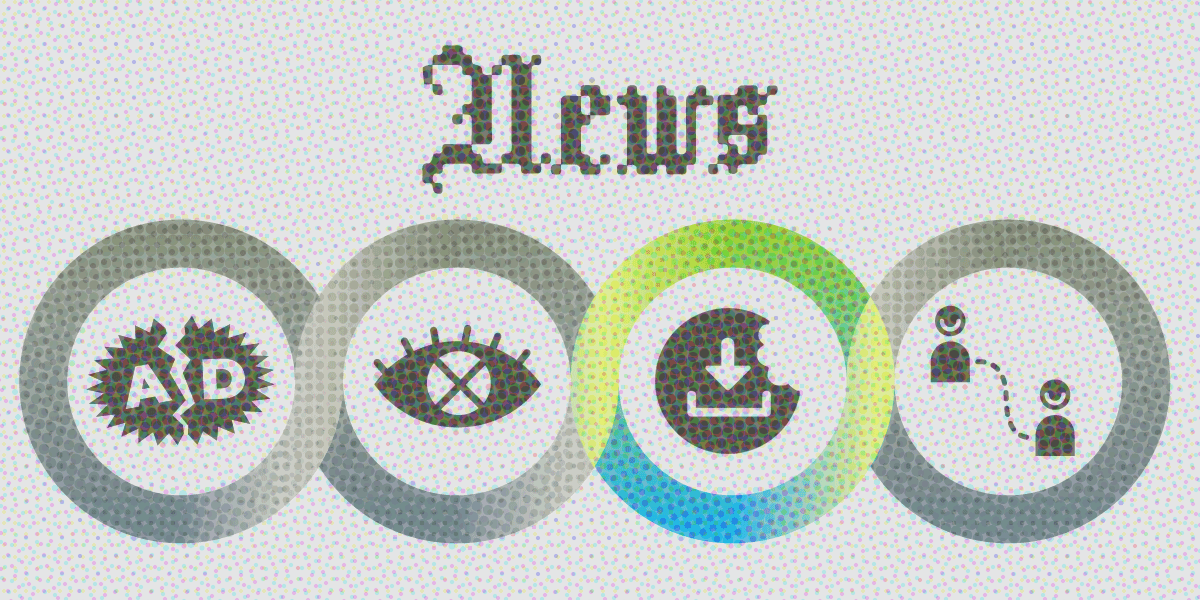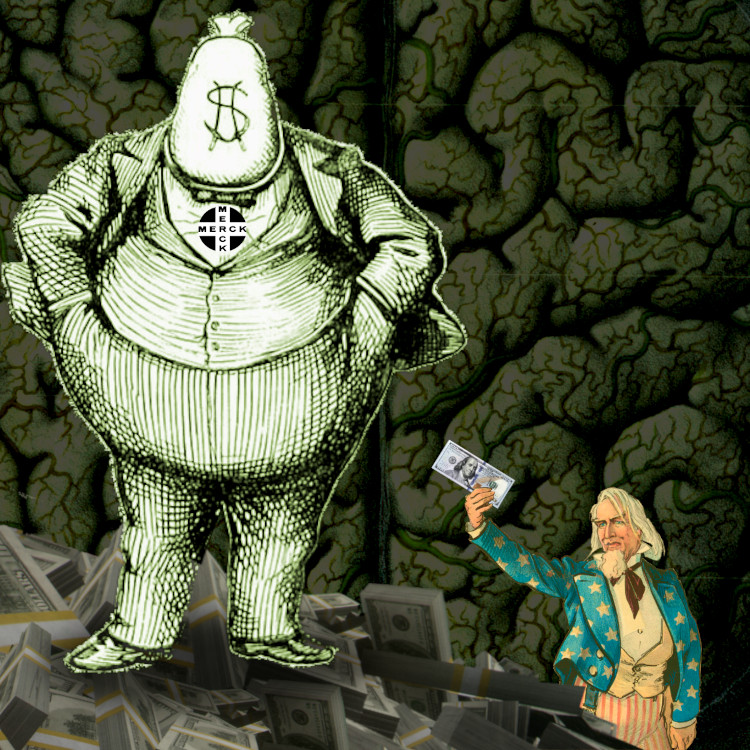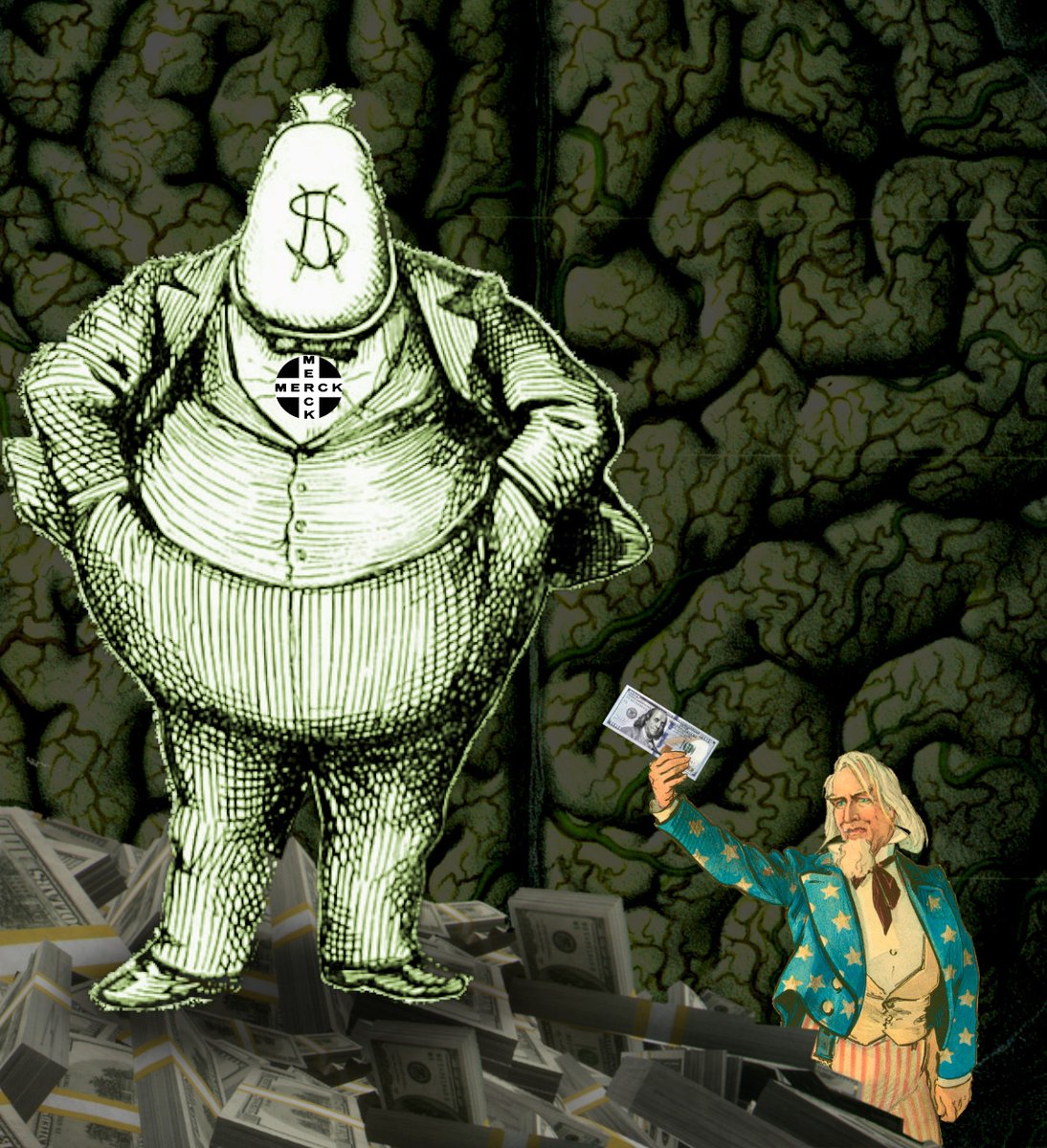Big Tech steals from the news, but what it steals is *money*, not *content*. Talking about the news, excerpting it, linking to it, quoting it - these are all beneficial, normal news activities. If you can't talk about the news, it's not news - it's a *secret*.
1/
1/

If you'd like an essay-formatted version of this thread to read or share, here's a link to it on pluralistic.net, my surveillance-free, ad-free, tracker-free blog:
pluralistic.net/2023/06/07/cur…
2/
pluralistic.net/2023/06/07/cur…
2/
But tech *does* steal from news. A variety of monopolistic tricks allows tech to interpose itself between reporters, publishers and outlets, and the audiences they serve. By creating chokepoints between the news and its audience, tech can extract gigantic sums from the news.
3/
3/
And because the news itself is dominated by the same kinds of extractive, vicious, gigantic corporations, the shit flows downhill: the first victims of attacks on news profitability are news workers - reporters, technical staff, illustrators, photographers.
4/
4/
A news outlet has to be really *starving* before it turns to the money claimed by vulture capitalists who buy distressed debt, or hedge funds who roll up papers, or wealthy owners.
5/
5/
Anything that can't go on forever eventually stops. Tech's ripoffs have reached a breaking point, and there's a broad coalition of journalists, media companies, audiences and politicians ready to do something about this. Now the question is: what should we do?
6/
6/
Whatever we do it should:
* Maintain broad access to the news;
* Make it easier for new news outlets to pop up;
* Make it easier for new *tech* outlets that carry the news to pop up, too.
7/
* Maintain broad access to the news;
* Make it easier for new news outlets to pop up;
* Make it easier for new *tech* outlets that carry the news to pop up, too.
7/
It shouldn't simply transfer funds to bond holders who own newspaper debt, or shareholders of media companies, or billionaire dilettante news proprietors. It shouldn't make the news and tech into "partners": we want the press to hold tech to account, not join forces with it.
8/
8/
A month ago, @EFF and I started publishing a five-part series of policy prescriptions "saving the news from tech." Part one was the "curtain raiser," setting up the whole program:
eff.org/deeplinks/2023…
9/
eff.org/deeplinks/2023…
9/
Each week since, I've published a specific policy recommendation. The first one was breaking up the #AdTech industry, on the lines suggested by @SenMikeLee's #AMERICAAct:
eff.org/deeplinks/2023…
10/
eff.org/deeplinks/2023…
10/
Next was passing comprehensive privacy law, which would kill off #SurveillanceAds and force a switch to "contextual ads" (ads based on what you're looking at, not who you are):
eff.org/deeplinks/2023…
11/
eff.org/deeplinks/2023…
11/
Both of these proposals are aimed at reducing the share of ad money claimed by tech, especially the ad-tech duopoly of #Google/#Meta. Ad-tech claims more than 50% of every ad dollar spent, thanks to their chokepoint on ads.
12/
12/
The ad-tech market is a cesspool of fraud, abuse and creepy practices. Fixing ads would make everyone better off, by freeing us all from ubiquitous commercial surveillance.
13/
13/
It would make the news better off, letting the news claim a much larger share of ad revenues, whether they are large media brands or independent reporters covering a niche subject in depth.
14/
14/
This week's installment turns to subscriptions. When #SteveJobs launched the Ipad in 2010, he set himself up as a daddy figure for the traumataized press, promising a return to subscriptions, with seamless payments through the apps in a walled garden:
memex.craphound.com/2010/04/01/why…
15/
memex.craphound.com/2010/04/01/why…
15/
But since then, the mobile duopoly of #Apple/Google has simply recapitulated the abusive extraction of the ad-tech industry, but for apps.
16/
16/
Both companies charge a whopping *30%* to process in-app payments, and both companies have strict rules banning app makers from evading this 30% #AppTax by steering customers to the web to complete payments:
eff.org/deeplinks/2023…
17/
eff.org/deeplinks/2023…
17/
The companies - nominally bitter competitors - have nevertheless converged on this 30% vig, allegedly without any anticompetitive collusion.
18/
18/
Apple uses #DigitalRightsManagement (#DRM) to lock people into using its #AppStore, threatening anyone who reverse-engineers its devices to add competing stores with five year prison sentences under #Section1201 of the #DigitalMillenniumCopyrightAct (#DMCA).
19/
19/
Google's #Android *does* have a facility for "side-loading" apps that aren't in its app store, but the company uses a web of commercial requirements and technological tricks to prevent a competitor from emerging:
theplatformlaw.blog/2023/05/24/why…
20/
theplatformlaw.blog/2023/05/24/why…
20/
The result is a *massive* transfer from the news to tech: payment processing normally costs 2-3%, but these companies manage to take a 30% bite out of every subscription dollar collected in-app.
21/
21/
Some very large outlets like the @nytimes can drive readers to sign up on the web and escape the app tax, but the additional friction costs even these large publishers a fortune in lost subscribers.
22/
22/
Smaller outlets have even less leverage over readers and are corralled into paying the app tax, making it a regressive tax indeed.
23/
23/
Unrigging the mobile payments market would produce good results far beyond the news, of course. Games publishers, independent creators, and office and productivity app makers would all benefit from no longer having to pay the app tax.
24/
24/
And so would their users: these app makers are passing on most of those payment costs to *us*, and we end up paying them, because there are only two major mobile platforms and they both charge the same app tax.
25/
25/
In the #EU, the #DigitalMarketsAct (#DMA) will force app stores to open up, paving the way for alternative app stores:
theverge.com/2022/3/25/2299…
26/
theverge.com/2022/3/25/2299…
26/
The mobile duopoly hate this, of course, and claim that forcing them to permit rival app stores would put users' security at risk. It's true that this *could* happen, but it doesn't *need* to: security and openness are compatible:
schneier.com/essays/archive…
28/
schneier.com/essays/archive…
28/
Next week, I'll conclude the series with a post on applying the #EndToEnd principle to social media, to prevent platforms from holding a publication's subscribers hostage in order to extract "boosting" fees from media.
29/
29/
Once that's out, we're going to gather all these posts into a single, downloadable PDF, suitable for sharing with the news junkies in your life, your friends in the media business, and your elected reps.
30/
30/
• • •
Missing some Tweet in this thread? You can try to
force a refresh

 Read on Twitter
Read on Twitter



















